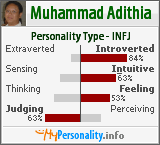Phobias are an anxiety disorder. All phobias respond very well to hypnotic treatment and there is no reason that anyone need suffer the debilitating effects of a phobia.
Anxiety is characterized by any of the following symptoms. They include shortness of breath, heart palpitations (rapid or irregular beat), trembling or shaking, sweating, choking, nausea or abdominal distress, numbness, dizziness or unsteadiness, feeling of detachment or being out of touch with yourself, hot flashes or chills, fear of dying, fear of going crazy or out of control. If four of more of these symptoms occur at the same time, the individual is having a panic attack.
If anxiety arises only in response to a specific situation, it is called situational anxiety or phobic anxiety. Social phobias, agoraphobia, simple phobia are all examples of situational anxiety. The situation certainly differs, for instance, social phobia is fear of social situations where the sufferer risks humiliation or embarrassment. The most common form is fear of public speaking. Agoraphobia is a fear of being away from home, a safe person or more accurately "fear of panic attacks" and what other people might think. Simple phobia can be a fear of animals, heights, elevators. I found over a 1,000 phobias listed at www.phobialist. com. All these phobias are much stronger than normal everyday anxiety so much so that the phobia sufferer will persistently avoid the situation that produces the strong anxiety. The anxiety has become out of control and the sufferer feels powerless to direct what's happening. The anxiety is interfering with the normal functions of their lives.
The symptoms of panic attack are the same as the symptoms of anxiety except that four or more of the symptoms happen at one time. It is not in response to a certain situation so therefore is different to phobic anxiety. Panic attacks happen "out of the blue". Panic attack becomes panic disorder when the individual has a panic attack and then spends the next month worrying if another one is going to happen (anticipatory anxiety).
Generalized anxiety disorder is characterized by chronic anxiety that persists for at least six months, but is unaccompanied by panic attacks, phobias or obsessions.
Phobic anxiety is not to be confused with Obsessive-Compulsiv e Disorder which is made up of both obsessions and compulsions. However, it is possible to have obsessions without having compulsions. Obsessions are recurring ideas, thoughts, images or impulses that seem senseless but haunt the sufferer. Examples include images of doing violence to someone else, or fears about having left the house unlocked, or leaving the lights on. The person realizes the thoughts and fears are irrational but cannot suppress them. Compulsions are the behaviors and rituals that the person performs in order to dispel the anxiety brought on by the obsessions. The most common compulsions include hand washing, checking, and counting. Obsessive-compulsiv e disorder is often accompanied by depression and in this way, is dissimilar to phobias. However, obsessive-compulsiv es may also have a phobia. For instance, a person with an obsession about dirt may have a phobia about public restrooms or touching doorknobs.
Phobic anxiety is also different to Post Traumatic Stress Disorder, PTSD which has a variety of symptoms that develop following a traumatic event. The latter can be war, earthquake, car crash, tornado, rape, assault or other violent crime. The persistent symptoms include repetitive distressing thoughts about the event, nightmares, flashbacks, emotional numbness, feelings of detachment and estrangement from others, persistent anxiety, loss of interest in things that used to give pleasure and attempts to avoid thoughts or feelings associated with the trauma. These latter attempts at avoidance set up a situation where phobia can develop. For instance, a person who has been in a car crash and has post-traumatic stress disorder may develop a phobia about driving a car.
The good news about phobias is that they are all respond well to treatment including hypnosis and standard psychotherapy. Treatment protocols include relaxation therapy, desensitization therapy involving removing the emotions from the event (phobia theater is an excellent protocol for this), insight-oriented therapy focusing on expressing feelings, overcoming negative self talk, overcoming mistaken beliefs and maintenance of a healthy diet and exercise program. For obsessive-compulsiv e disorder and post-traumatic stress disorder, there may well be real depression and medication may be necessary.




2 comments:
well, i'm scared with lizard/ cicak. .still have no solutions to break this fearness.
My neighbor and I had been simply debating this specific topic, he's normally looking for to prove me incorrect. Your view on that is nice and exactly how I really feel. I just now mailed him this website online to point out him your individual view. After wanting over your web site I ebook marked and shall be coming again to learn your new posts!
IЎЇm delighted that I've noticed this weblog. Lastly anything not a junk, which we go through extremely frequently. The website is lovingly serviced and stored up to date. So it should be, thank you for sharing this with us.
Very efficiently written information. Will probably be helpful to anybody who usess it, including myself. Keep up the great work – for sure i'll try extra posts.
I’m still learning from you, but I’m enhancing myself. I definitely love reading all the pieces that is written on your blog.Preserve the stories coming. I cherished it!
What i find troublesome is to find a blog that may seize me for a minute but your weblog is different. Bravo.
Post a Comment